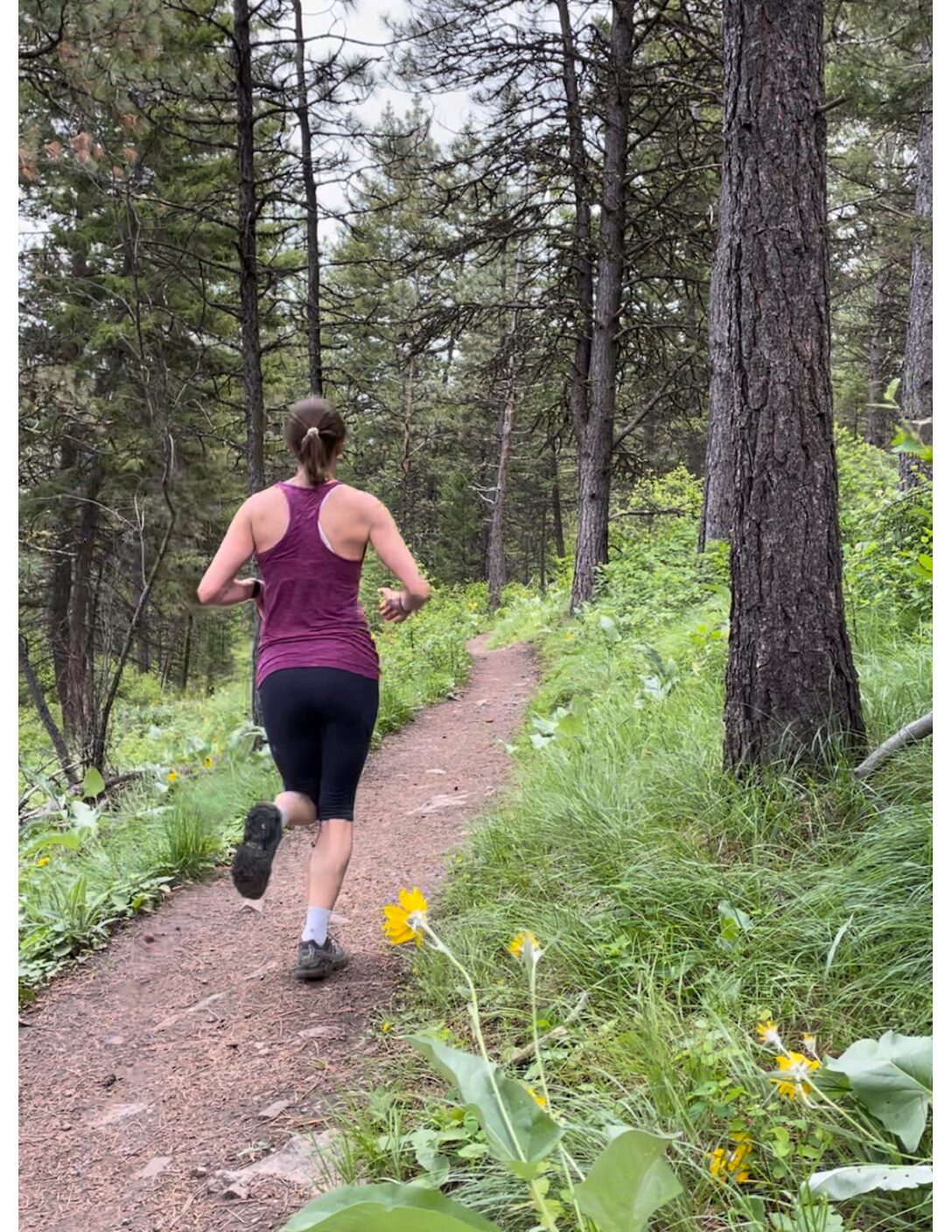
It’s the middle of February, days are getting longer and it’s about to be light when we get home from work. When that happens, all of the sudden I see people out running – everywhere! It’s also about 20 weeks from the Missoula Marathon and 1/2 Marathon, the ideal time to begin your training routine. At Alpine PT we love running and the people who run. Many of us are runners ourselves, at some level, and we all think running is a great way to move your body and stride around this beautiful place we live. We take a stance against the common refrain heard a lot, “running will wreck your knees,” when in fact there is expanding evidence that runners have more healthy cartilage in their knees than non-runners. Therefore, at Alpine we believe that almost anyone can take up this age-old human form of recreation. We’ve collected a little advice from some of our PTs and their suggestions to be a successful runner.
Jess Kehoe advises the old saying, “slow and steady wins the race”! When trying to build up miles, take your time. A good rule of thumb is not to increase more than 10% per week. But also listen to your body. And, “if you are getting up there in the age decades (like me who just headed closer to 50 than 40 😬) recovery starts to play a more important role”. So getting good nutrition and rest are just as important as the miles.

Dennis McCrea, a seasoned and wise runner beyond any doubt, with several marathons, including the Boston under his belt, gives this advice: “Get into a consistent daily core strengthening and stretching routine NOW to prevent injuries in the future.” He also encourages a training plan, both for new and experienced runners. “For those who have not run a lot and for whatever reason have decided to run a 1/2 or full marathon I would recommend signing up for the Run Wild Missoula running class. It is geared for all types of runners but especially those who have not gone through that sort of training. It gives them guidance, people to run with at a similar pace, and provides lots of great running tips.”
Angela Listug-Vap is in agreement on training and recalls that “after years of treating ‘new to marathon’ runners, I’d say the most common training errors I saw were: 1) ramping up too fast, and 2) no cross training of any kind, just running. I found once people started cross training for more lateral and cross body movements, plus core and hip strength they did great.” She also shared a great “race day” consideration: “when you travel to a marathon you’re tempted to get there early and spend a day or two walking around to check out the place. Don’t do it, limit your steps the day before a race – your body will thank you.”
Brace Hayden reminds us that the knowledgeable PT’s at Alpine can also help you make a successful plan. “I advise patients that are looking at training for longer mileage races to dial in a solid running program. Giving their current running program a review is helpful and then balancing it out. I try to make sure they have a dedicated dynamic warm-up at the beginning of each run and make time for some sort of short post-run stretch/mobility routine. Lastly, I work with the runner on customizing some cross training and a comprehensive strength routine to avoid injuries that often crop up with high-mileage runs.”
So here’s to the last few weeks of winter. Maybe you’re not quite ready to trade your skis out for your running shoes, but soon the sun, trails and dry sidewalks will lure you out there. As always, keep Alpine PT on your speed dial, so if problems do arise, our expert PT’s can help you take care of them quickly.
 missoulamarathon.org >>
missoulamarathon.org >>